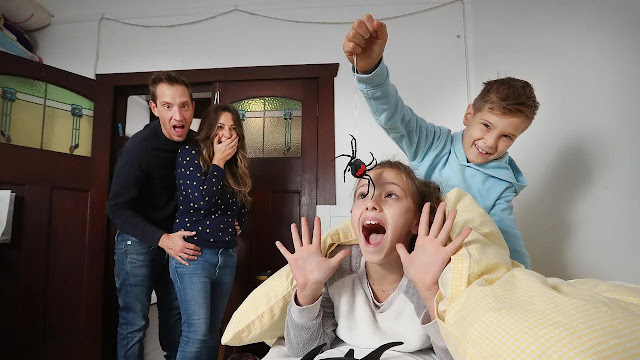Prank Content is increasingly circulating on social media. The victims are not only adults, but also children. With the ability to attract viewers because of their behavior that is considered funny, many young children are used as objects for joke content.
But have you ever considered the impact of prank content on a child's psychology? Launching CNA Lifestyle, Friday, October 7, 2022, children's prank content received two contradictory responses. One is concerned about the welfare of the child, the other believes it is nothing to worry about.
“Sharenting”, a neologism for sharing sensitive content about children on the Internet, is often examined through the lens of ethics and cybersecurity, but little is said about its impact on child psychology. CNA Lifestyle spoke with Dr Lin Hong-hui, principal clinical psychologist at The Psychology Atelier and a lecturer at Nanyang Technological University, to uncover the matter.
"When a child does something pure and innocent, they intuitively express their need for curiosity and exploration," says Lin.
"It's great for parents to enjoy their cuteness and express their pride through recording and sharing moments," said Lin.
She adds that things are not black and white, and the extent to which they rely on social media for parent-child interactions is important. Lin admitted that he was concerned when parents' interest and positive feelings were often shown through recording and disseminating the results.
Need to 'Show'
Without realizing it, parents can send messages to their children that in order to receive attention and affection, the child needs to 'show up'. For example, a child who blows dandelion flowers rejoices when he sees the flower pieces flying. Then the parent asks the child to do it again and the parent takes out the device to record it.
According to Lin, the message when internalized can communicate the opposite of unconditional love. "Self-worth is built on love and acceptance of a child as a person, period. A child is good enough, not only when they behave well or show a positive mood," he explains.
"If parents' positive feelings are associated with this condition, children may feel that just being themselves is not enough," he continued.
Not only children's joys are recorded and disseminated, now children are also included in prank content made by their parents. Some of his videos are widely shared on TikTok, such as pranks with ghost laughing sound filters on TikTok. In the content, the children are locked in a room with a device and the "ghost" filter activated so that it appears on the front camera.
Some of the children just had goosebumps, but others were seen screaming and struggling to escape. The content is among the materials that invite criticism from other users.
Shake Two Critical Aspects
According to Lin, when children are scared or stressed, what they need is emotional support. So when parents actually record on video, they position themselves as observers of their child's distress, not the party that should provide emotional support. This, he continued, could clearly damage children's trust in their parents.
"If a child is clearly unhappy, self-conscious, or embarrassed, they need their parents to stop recording and adjust or attune to them," she adds.
According to Lin, today's parents should have attunements, namely the ability of parents to read their child's emotional state and meet their needs. It builds a connection and fosters a sense of self for the child. Attunement skills will develop two critical aspects in children, namely the child's sense of self-worth and their ability to trust.
"These are the two foundations of the psychological development of a secure self. When parents often miss, ignore, or misread their children's needs, it raises doubts in their minds," says Lin.
"Kids will be like, 'I'm not feeling well, but why can't Mom and Dad help me? Can I trust the people closest to me to take care of me? They don't understand me – is it because there's something wrong with me?'" she continues.
Think of Children's Future
"Frequent exposure to social media also shapes children's impressions of the world and enhances social comparison. A child may begin to base his self-worth on the perceptions of others through comments and likes. Is their world good or critical? How should they be 'worthy' in the world this?" Lin said.
Lin emphasizes that emotionally significant events can go unreported when children are not of the developmental age to do so. Children who cannot trust their parents will feel pressured and stressed inside. Like a snowball effect, it will be risky in various aspects of life.
He acknowledged that most parents mean well by posting their children as content on social media. However, he asked parents to think for a moment before hitting the 'share' button.
"Am I okay if someone takes and shares my video in this way? If I share a funny moment, does it have to be a video of them in distress? If I keep updating my family, is this video necessary? As for mementos , does it need to be published?” Lin said.
Parents can set their social media accounts to private status or use the "close friend" function to limit their content to a smaller, more trusted audience. Sensitive information such as full names, birth dates, schools, location tags and even children's faces can be hidden.
"To be careful, never share potentially embarrassing and humiliating videos or photos. Think of it this way: If a future school, scholarship board, or job recruiter saw this, what kind of impression would they form?" Lin explained.

